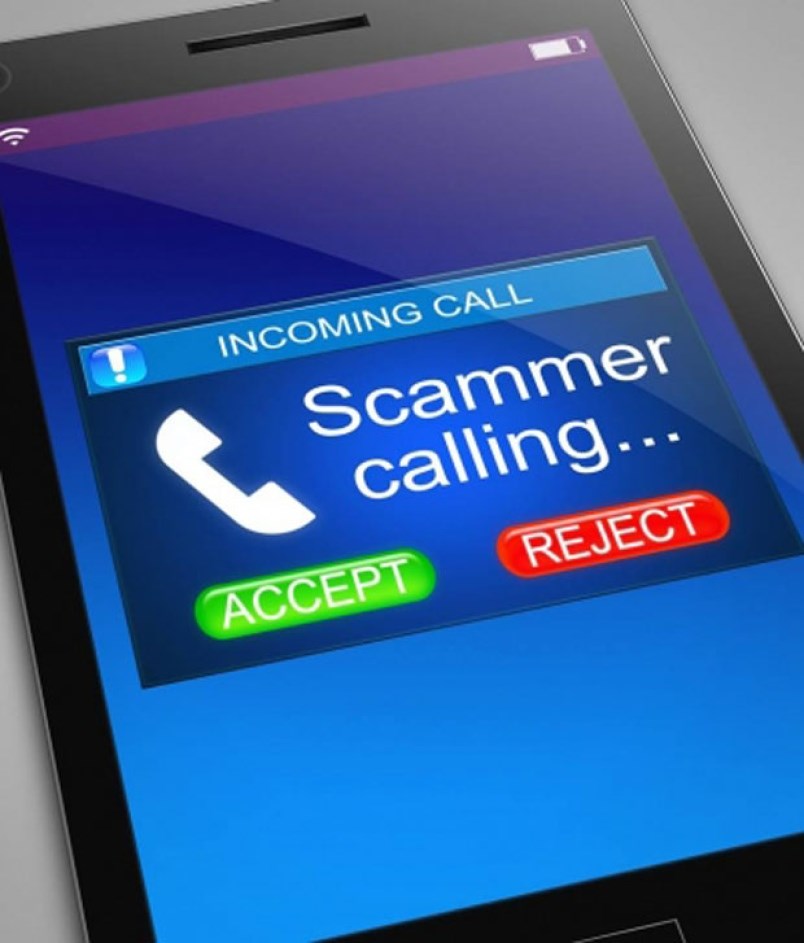Government impostor scams have become more diverse and sophisticated, according to the Better Business Bureau (BBB), with scammers using “fear and intimidation” tactics to get victims to turn over personal information or money.
In a recent report to the BBB, a Vancouver resident said they received a call saying an arrest warrant was issued by the federal government, because their identity was used for drug trafficking and money laundering in Toronto.
The victim told the BBB that the scammer told them they had to move their money to a “safer location” so they could freeze their account and help the victim out. The Vancouver resident followed instructions, and sent “everything (they) had by cryptocurrency.”
In total, scammers stole $3,500 and the victim’s Social Insurance Number (SIN).
“Government impostor scams are constantly evolving,” said Karla Laird, the BBB’s manager for community and public relations.
“Using persistence and intimidation tactics, they prey on people with threats of being arrested if money is not paid or personal information is not provided. Consumers need to know how to recognize and avoid this costly fraud.”
The agency says use of “fear and intimidation” to trick victims is common, and in some cases, scammers “insist” they are law enforcement officers, and threaten to arrest people immediately if they don’t pay money – usually in the form of gift cards or cryptocurrency.
The scammers may also tell consumers that their Social Insurance Number (SIN) has been compromised, associated with a crime, and may threaten to deport recent immigrants or arrest people for improperly filing their taxes.
Scammers have also taken advantage of the COVID-19 pandemic, according to the BBB, which said it found during a recent investigative study that complaints about fake calls from Service Canada increased in the first six months of 2020.
The agency says scammers are posing as the Public Health Agency of Canada, local BC Health Services officials, and Canada Revenue Agency (CRA) representatives who “expedite economic impact payments and contact tracers employed with local government agencies.”
“Other scam callers lure victims with the promise of a ‘free’ government grant, which they claim will be awarded if the victim pays a fee with a gift card, bitcoin or prepaid debit card,” reads a release from the BBB.
“In reality, there is no grant.”
Meanwhile, for the first time in “several years,” according to the agency, the Canada Revenue Agency tax scam did not make the BBB’s list of Top 10 Riskiest Scams.
Many of the scams involve robo-calls that are transferred to call centres in India when the call is answered.
Those impostor calls from India must first go through a “gateway carrier,” which often provides spoofed phone numbers that appear on caller IDs and return phone call numbers for voicemails that appear to be based in Canada, according to the BBB.
According to the BBB, joint efforts between Canadian and U.S. agencies are helping fight these scams.
And while robo-calls and individual calls coming from India have “drastically” declined over the last several months, the BBB study found that cases are rarely prosecuted in India.
“BBB recommends that the telecom industry maximize efforts to stop illegal calls and to end caller ID spoofing,” reads the agency’s release.
“(And) that law enforcement continue to take action against scammers who are physically present in North America; and that the gift card industry and retailers should explore additional ways to stem fraudulent use of their products.”
To complain about government impostor scams, the BBB says to:
- Contact the Canadian Anti-Fraud Centre at 1-888-495-8501 or online
- File a report with the BBB Scam Tracker
- Contact your cellphone carrier, which may offer free services such as scam call identification and blocking, ID monitoring, a second phone number to give out to businesses so you can use your main number for close friends or a new number if you get too many spam calls.



